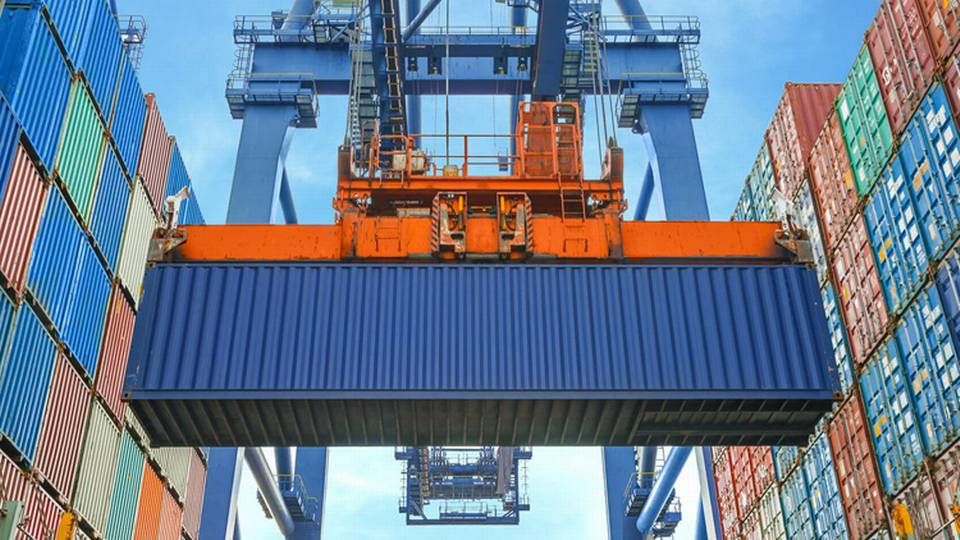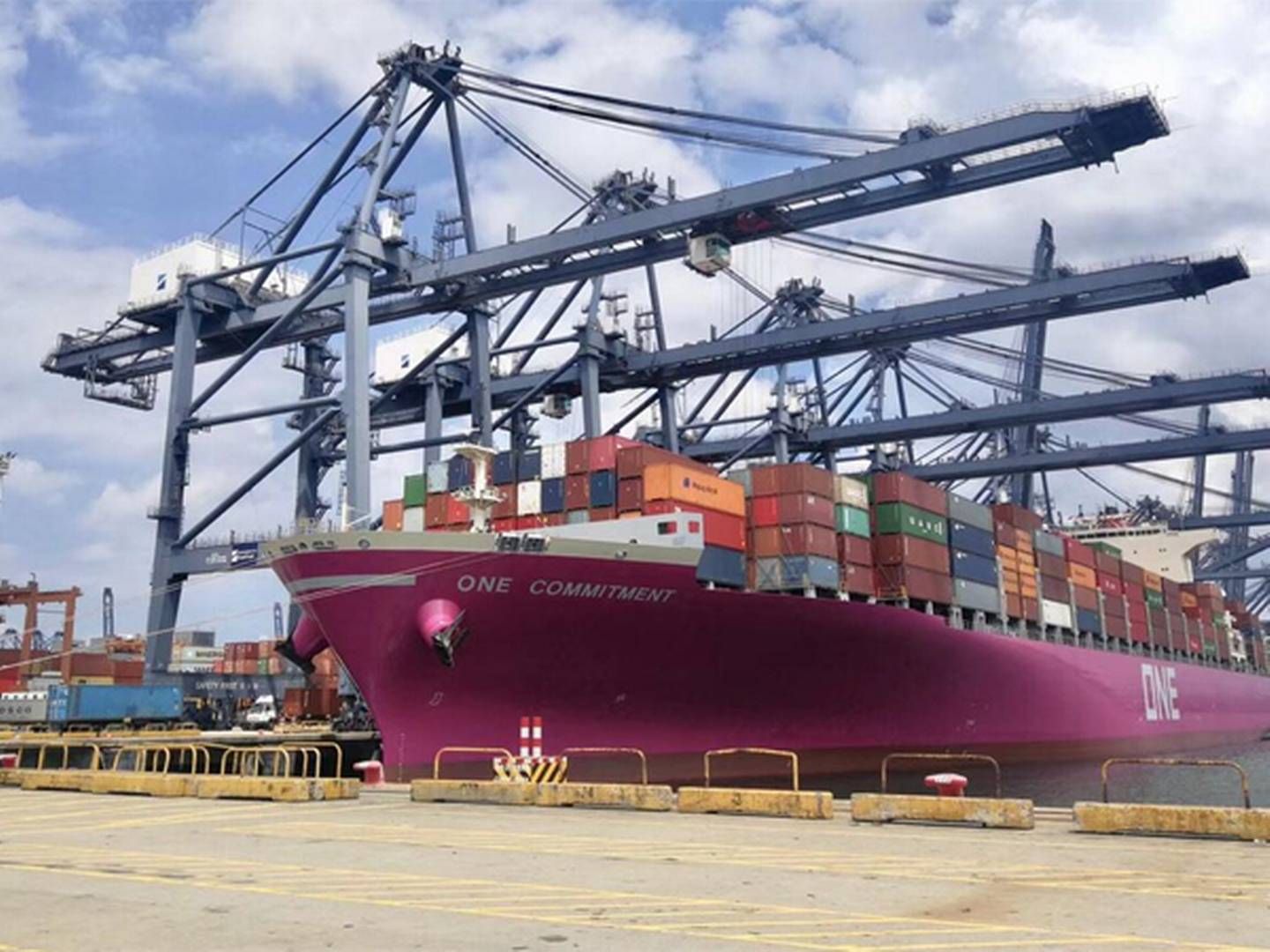Scan Global sends controversial bunker surcharge on to customers

The extra bill for ship fuel will not spend much time in the hands of freight forwarders before it is sent on to the customers.
At least, this is the case at Scan Global Logistics, which would not be able to pay the emergency bunker surcharge (BAF) itself, says CEO Allan Melgaard in an interview with ShippingWatch.
Under various headers, liner shipping companies such as Maersk Line, Hapag-Lloyd, CMA CGM, MSC and Cosco have in recent weeks announced emergency BAFs that customers must pay. This happens after carriers' fuel costs have so far increased significantly, a development that hurt numerous box carriers' earnings in the first months of 2018.
The new bunker surcharge has triggered criticism from shippers such as Electrolux and Cargill, and the tariffs have also been brought before the EU Commission by the European Shippers' Council, which has sent a letter of complaint to EU Commissioner for Competition Margrethe Vestager.
At Scan Global Logistics, where a significant portion of the business comes from sea freight, CEO Melgaard also criticizes the added surcharge.
"There aren't many customers who are pleased that the liner companies have decided, in the midst of contract periods, to require an added surcharge. This is of course a difficult conversation we must have with our customers, as they've signed a contract which will now be changed," he tells ShippingWatch:
"We're trying to send the bill on to our customers. We operate our business on such slight margins that we wouldn't be able to withstand it if we had to pay the bunker surcharge ourselves. I see that all freight forwarders are facing the same challenge and are trying to resolve it in the same way."
He calls for a different way for the liner companies to handle the extra costs that can hit their business.
"Of course the shipping companies need to make money. But perhaps one could find a model that is more up to date in terms of how things are priced," says Melgaard.
Rates cut in half
Other stakeholders in the sector also call for a bunker cost approach that takes shipowners as well as shippers into consideration. Analyst firm Drewry recently noted that the shippers have good reason to be displeased with the emergency BAF.
For the liner companies' customers, numbers indicate that it has become significantly cheaper to ship a container today than in the past. Adjusted for fluctuations in the bunker and oil prices, the de-facto freight rates have gone down more than 50 percent over the past 20 years, concluded another firm, Alphaliner.
However, the price itself is not the main point of contention in the shippers' criticism of the liner companies, says CEO Melgaard of Scan Global Logistics.
"The price to ship a container will always vary, but I think the shippers' problem is to a larger extent that they have entered some agreements, and that the pricing is then changed during the contract period because the liner companies find themselves under pressure. A shipping company is free to raise its rates when a contract period expires, and it's then up to the customers to say yes or no or whether they want to make long or short-term deals," he tells ShippingWatch.
Several factors trigger delays
The controversial emergency BAFs are introduced at a time when the container sector's schedule reliability has been strained by many delayed container ships.
In the first quarter, only two out of three container ships arrived on time, according to analyst form SeaIntel. The numbers showed a clear deterioration compared to just a year ago, and this elicited criticism from customers and introspection among the liner companies themselves, leading several carriers to announce route network adjustments.
Speaking to ShippingWatch, Melgaard finds it tricky to put a number on how much the delays cost Scan Global Logistics in addition to extra work and energy spent informing customers. The problem of delayed containers and cargo volumes is broader than that, and it is not caused by the liner companies' ships alone, he says.
For one, many ports are not quipped to handle the ships' cargo volumes. And second, there is a significant shortage of drivers and truckers, especially in the US, says the CEO.
"That being said, one could of course hope that the shipping companies would focus a bit more on their core activity, rather than what they want to do going forward," says Melgaard, adding that some liner companies are striving to become a complete logistics business, while there are also players looking to digitalize the entire supply chain.
"As a customer I'd appreciate it if the core activity worked. I think it's easier to digitalize and make things smarter if one's core activity is under control. This applies to the delivery of containers on time, at the agreed-upon price, and that the bill generally corresponds with what's been arranged."
Is this view also influenced by the fact that some liner companies are looking to do some of the things you do today?
"No, our market is still highly fragmented, and there's no doubt that it takes more in terms of consolidation, so the shipping companies are welcome to do so. But on behalf of our own customers, we at least call for the service to correspond to what's been agreed upon. We have a very hard time arguing our delays to our customers. Of course they understand delays due to bad weather, but constant delays are difficult to explain," says Melgaard.
Scan Global Logistics was acquired by equity fund AEA Investors in 2016.
English Edit: Daniel Logan Berg-Munch
Shippers complain to the EU about liner companies' emergency BAF
Related articles
ONE follows suit with controversial bunker surcharge
For subscribers


















